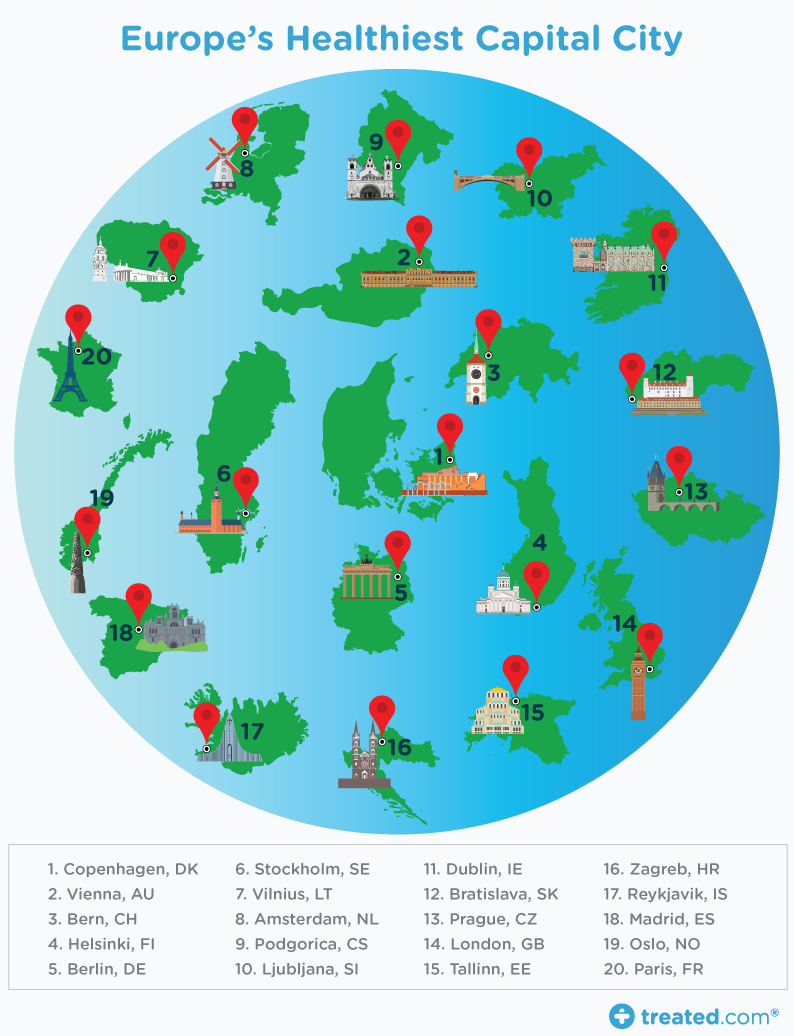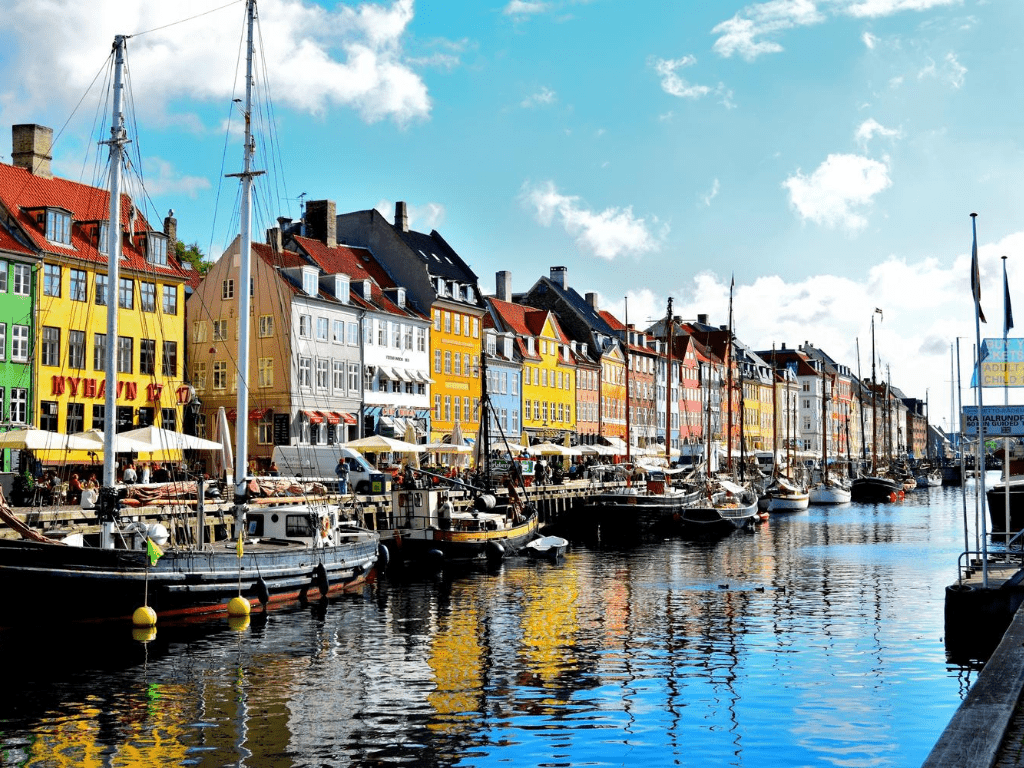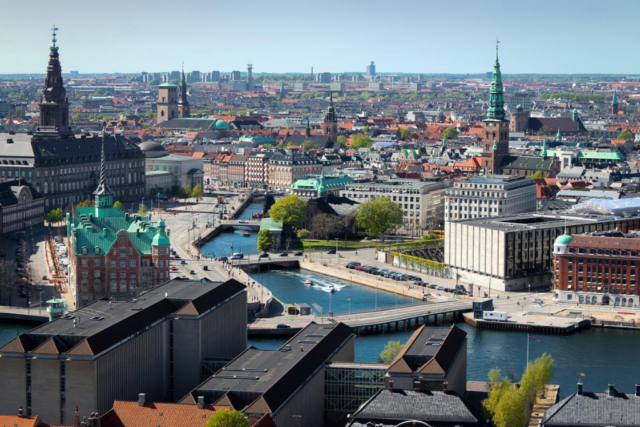Copenhagen was found to be Europe’s healthiest capital city overall, a ranking that owed much to the city’s CO2 emissions and drinking water as well as its cycling and walking culture.
Treated.com has calculated the healthiest capital city in Europe using an expanse of data, collected from a number of sources including Numbeo, HPI ThinkTank, World Population Review, World Bank Group and Index Mundi.

They collected data for 10 variables relating to health, which were each ‘ranked’ out of 46. (Because a total of 46 European capital cities were considered in this accumulative process).
The top 10 variables were: fitness club, the monthly fee for 1 adult; life expectancy; air quality; water quality; overall quality of life; per cent of GDP allocated to healthcare; cost of 5 fruit or vegetables; CO2 emissions; walk or cycle to work; quality of green spaces.

While Baku (Azerbaijan) was found to be an affordable city for things like organic food and the cost of a gym membership, it failed to score highly among other variables such as CO2 emissions, air quality, water quality and health expenditure.














